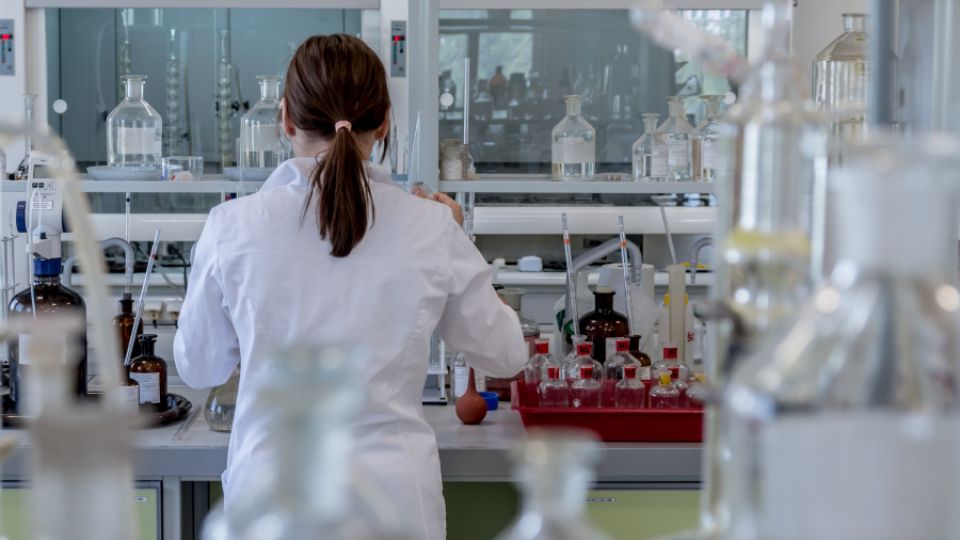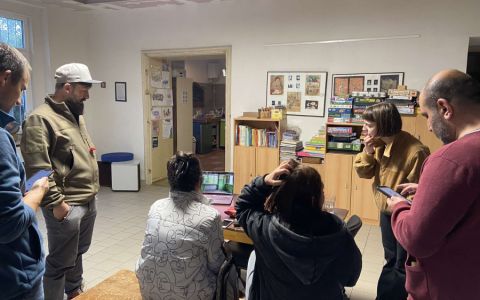Given that EU citizens are still exposed to perfluorinated substances (PFAS) [1] because of the insufficient legal restrictions, Arnika has begun to investigate the contamination patterns of PFAS exposure, from outdoor clothing to wastewater. “Recently, we have bought ten outdoor jackets made by Czech outdoor textile companies. We are going to have them analyzed for perfluorinated substances, then wash them and analyze the wastewater from the washing as well. The results will be published in the second half of 2022,” says Karolína Brabcová, Arnika’s expert on toxic substances in consumer goods.
Why is the regulation of PFAS necessary? They contain a strong chemical bond between carbon and fluorine atoms, which makes those substances very persistent. That is why they are also known as “forever chemicals”. PFAS have been detected in air, soil, water, including drinking water sources, and household dust, and they increase the total chemical burden on the environment, including humans.
Complete ban on PFAS?
The issue of PFAS is very complex and includes consumer products as well as many industrial applications. One of the major sources of PFAS exposure comes from the use of firefighting foams when large quantities of PFAS are spread in the environment and contaminate the soil and water for years after its use. The most contaminated sites are usually military airports where firefighting training is held regularly. ECHA [2] and member state authorities proposed banning an entire class of PFAS in firefighting foams. The fluorine industry opposes such efforts and has asked for long transition periods. However, many companies have already manufactured PFAS-free firefighting foams for almost half a decade, and the PFAS-free alternatives are as efficient as the ones containing PFAS.
Sara Brosché, a science adviser at the IPEN [3], added that “forward-thinking” manufacturers have been developing fluorine-free alternatives for years and with the highest fire safety standards. “It is disappointing that some companies have focused on regrettable substitution instead,” she said. The environmental organizations stress that the situation needs an urgent solution because EU citizens are already exposed to harmful levels of PFAS and the implementation of the ban would take at least a year.
Regardless of the ongoing dispute over this single restriction on PFAS in firefighting foams, more ambitious plans of the REACH [4] competent authorities of Denmark, Sweden, the Netherlands, Germany, and Norway are already on the table. They are going to submit their joint restriction proposal on banning all PFAS in textiles, cosmetics, food packaging, and materials coming into contact with food to ECHA at the beginning of 2023.
Read more: A study about PFAS in clothing conducted by Arnika and IPEN
The future of the restriction proposals is important because PFAS act as what are called endocrine disruptors, which have a negative impact on the thyroid gland. They also increase the risk of kidney and testicular tumors, cause female infertility, and reduce vaccine efficiency in children.
[1] Per- and poly-fluoroalkyl substances are a large group of more than 4,700 synthetic organic substances used ubiquitously in consumer and professional products. They are used to make products water-, grease-, and stain-resistant, and are commonly found in waterproof rain gear and food packaging, as well as in non-stick cookware and firefighting foams. However, most of the uses of PFAS are not essential for the functioning of society and there are safer alternatives that could be used instead.
[2] European Chemicals Agency
[3] International Pollutants Elimination Network
[4] An acronym for Registration, Evaluation, Authorization, and Restriction of Chemicals







